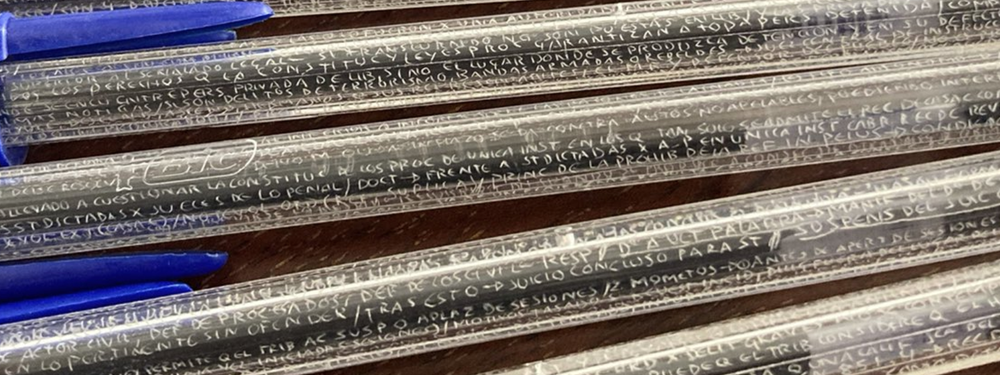Bic Transit Gloria Mundi
Is it really cheating if you learn?
The image of these intricately and carefully carved notes on pens is really striking. It’s even more striking when (assuming the redittors are right) the text is largely the Spanish civil code. Taking notes, re-writing things to be concise, and then copying them out are great study aids. More, it’s really unclear to me why an exam like this would be closed book. You have to know where the material is, and be able to efficiently find it.
The first phases of the pandemic brought many changes to how we teach and learn. Some were good, some bad. The rushed transition was hard for teachers and administrators, losing the babysitting function of schools was hard for families. Overall, a lot of broad metrics are way down, including at the 9 year old level (math and reading) and high school level (ACT falls to a 30 year low). But it also gave us a chance to grapple with things like how we test and why.
A single exam is generally a worse indicator of learning than project work. Exams are needlessly stressful, and so we’re testing function under stress more than we're testing learning. Of course, function during stress matters for a few jobs, like police or firefighters. And, back to the pens, lawyering requires an ability to think on ones feet in front of a judge. But much of lawyering is gathering and integrating facts and developing arguments. That work doesn’t require a stressful exam.
When I taught Security Engineering at UW, the final was a project, with layers of check-in so that students who put in the work could succeed. When I teach threat modeling, I don’t grade, because the real grade is “how does a team do” after I’ve taught them. But anyone who wants to cheat in my threat modeling courses by carving notes into a pen will get an automatic A.
Source: Reddit, confiscated pens containing cheat notes intricately carved by a student at the University of Malaga, Spain